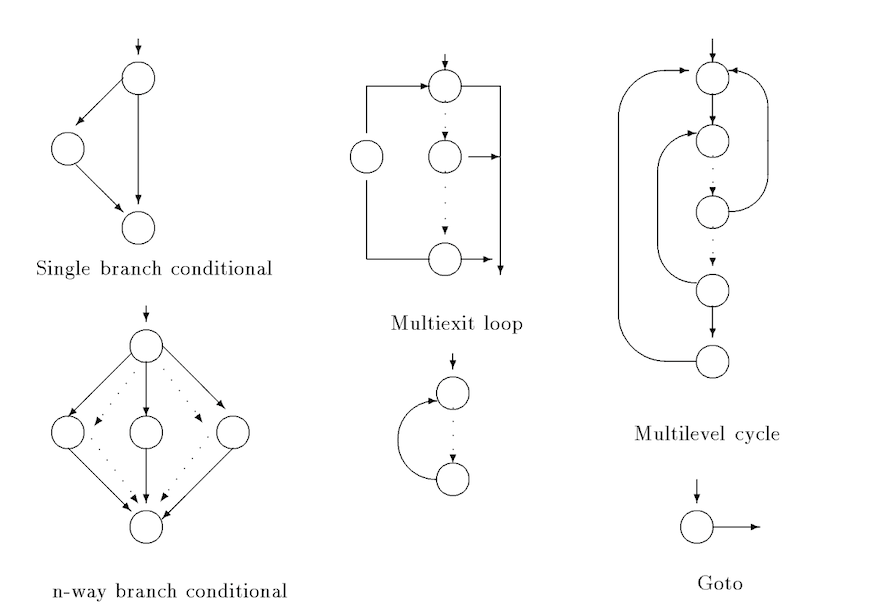Schema-based Structuring¶
Introduction¶
Schema-based structuring is a type of structuring that depends on a set of known compiler graph patterns1. With this in mind, a decompiler must know all of the compiler graph patterns to generate code that is structured3 (contains no gotos). An example of this type of structuring can be found in the overview section. Schema-based structuring techniques are the most popular techniques among decompilers12456.
Example Graph Patterns¶
Example graph patterns, from Cifuentes 1994 dissertation1, can be seen below:

Approaches¶
After the foundational dissertation from Cifuentes, the Phoenix2 work improved on structuring by adding more condition patterns. These patterns allowed for more correct structures (like loop reductions).
Follow-ups to this work all used gotoless34 structuring methods until the SAILR5 work in 2024. The SAILR work improved on the gotoless algorithms by introducing a new type of schema that "reverts compiler optimizations."
-
Cifuentes, Cristina. Reverse compilation techniques. Queensland University of Technology, Brisbane, 1994. ↩↩↩
-
Brumley, David, et al. "Native x86 decompilation using Semantics-Preserving structural analysis and iterative Control-Flow structuring." 22nd USENIX Security Symposium (USENIX Security 13). 2013. ↩↩
-
Yakdan, Khaled, et al. "No More Gotos: Decompilation Using Pattern-Independent Control-Flow Structuring and Semantic-Preserving Transformations." NDSS. 2015. ↩↩
-
Gussoni, Andrea, et al. "A comb for decompiled c code." Proceedings of the 15th ACM Asia Conference on Computer and Communications Security. 2020. ↩↩
-
Basque, Zion Leonahenahe, et al. "Ahoy sailr! there is no need to dream of c: A compiler-aware structuring algorithm for binary decompilation." 33st USENIX Security Symposium (USENIX Security 24). 2024. ↩↩
-
Ďurfina, Lukáš, et al. "Design of a retargetable decompiler for a static platform-independent malware analysis." Information Security and Assurance: International Conference, ISA 2011, Brno, Czech Republic, August 15-17, 2011. Proceedings. Springer Berlin Heidelberg, 2011. ↩